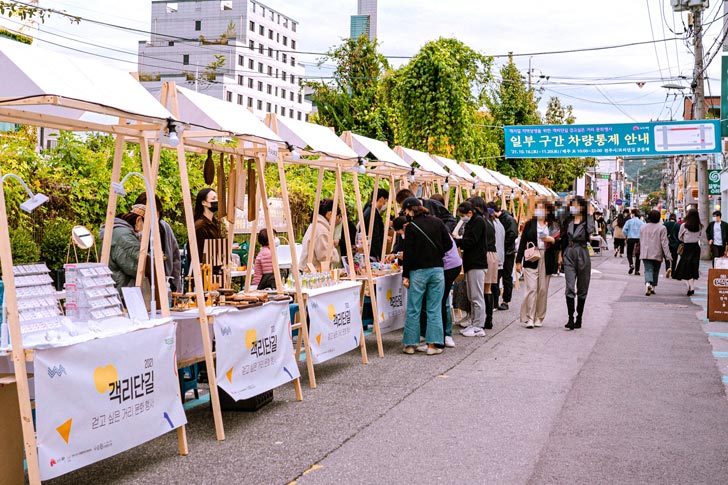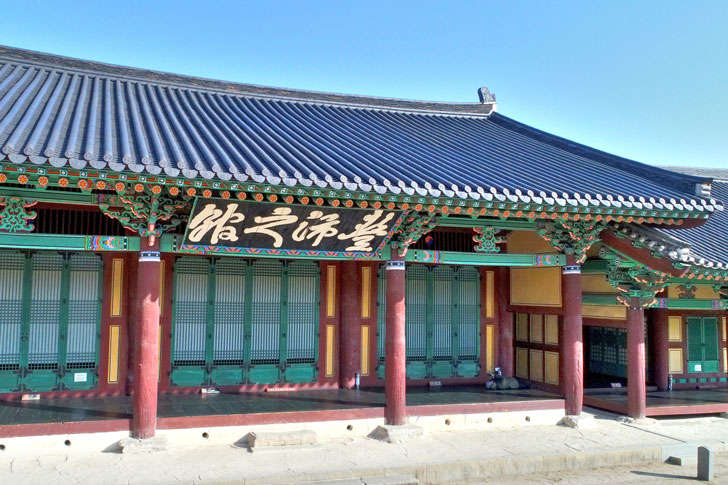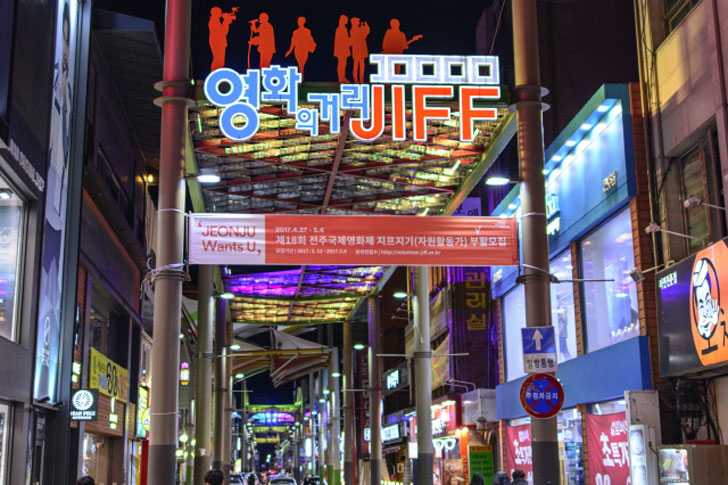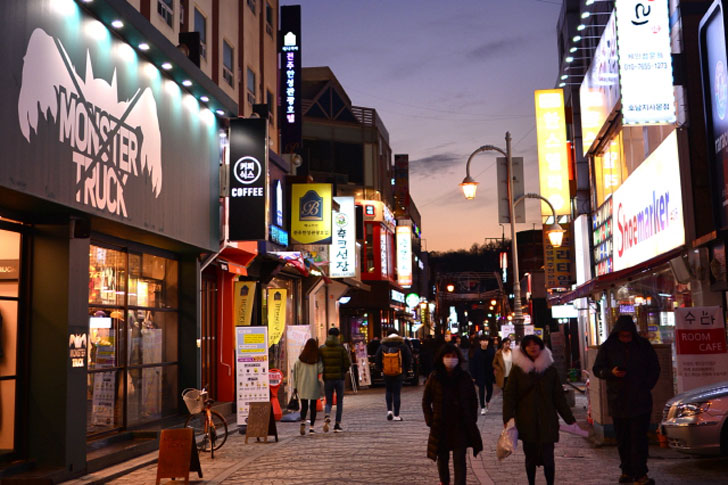No-car Street for People!
Gaengnidan-gil, the pedestrian-friendly street
Gaengnidan-gil is around Gaeksa 1-gil and 2-gil in Daga-dong, the old downtown of Jeonju, Jeollabuk-do. Gaengnidan-gil is a compound word of ‘Gaeksa,’ a historic site from the Joseon period in Gosa-dong, Jeonju, and ‘Gyeongridan-gil’ in Seoul. This district mainly consisted of entertainment and residential facilities from the 1970s to the 1980s. However, this district has less foot traffic than the main commercial district of Jeonju, which has moved to Seosin-dong, the area in front of Jeonbuk National University, Junghwasan-dong, and Seobu new downtown since the 1990s.
With the release of the Greenbelt Zone, which was applied for about 10 years in 2016, the youth with a small amount of capital came here to start new businesses. Since then, various cafes and restaurants have been opened, and the commercial district was formed. The name ‘Gaengnidan-gil’ was made because it looks like ‘Gyeongridan-gil’ in Seoul.
- Jungang-dong 2-ga, Wansan-gu, Jeonju (around Gaeksa 1-gil and 2-gil, Daga-dong, the old downtown of Jeonju)
HOT SPOTS in Gaengnidan-gil

Main roads in Gaengnidan-gil! Cultural events on the pedestrian-friendly street
The No-car street for people! Gaengnidan-gil hosted cultural events on the pedestrian-friendly street for tourists and residents exhausted by COVID-19 in Oct. 2021. It’s the main road in Gaengnidan-gil, the compound word of ‘Gaeksa,’ the old downtown of Jeonju, and ‘Gyeongridan-gil’ in Seoul. As diverse kinds of stores, including cute cafes, restaurants, and daily goods shops, were opened, the district became one of the hot spots in Jeonju. Many artists joined the events and performed exciting musical performances, dance performances, and busking. The young entrepreneurs opened a flea market selling unique tourist goods they produced.

Pungpaejigwan (Jeonju Guesthouse)
Manggwollye, the rite of a government officer to pay tribute toward a royal court, was held in Pungpaejigwan. Pungpaejigwan symbolizes the authority and dignity of the old Jeolla Government Office. The signboard ‘Pungpaejigwan’ was written by Ju Ji-beon, an envoy of China, when he dropped by the guesthouse on the way to visit Song Yeong-gu, the classical scholar in Iksan. ‘Pungpae’ refers to the native hometown of the founder. Jeonju is the hometown of King Taejo Yi Seong-gye, who founded Joseon. So, Jeonju was named ‘Pungpaejihyang,’ and the Jeonju Guesthouse was named ‘Pungpaejigwan,’ meaning that this district was the origin of the Joseon dynasty.
- 59, Chunggyeong-ro, Wansan-gu, Jeonju
- 063-281-2787

Cinema Street
Cinema Street is the main street for the Jeonju International Film Festival. Enjoy shopping and watching films because the theaters and snack booths are all gathered along Cinema Street.
- Gosa-dong, Wansan-gu, Jeonju

Pedestrian-friendly Street
Pedestrian-friendly Street is the place for meeting in Gosa-dong. The street is filled with the pleasure of shopping with a wide range of stores. Unique pleasures are hidden here and there along the street.
- Daga-dong 3-ga, Wansan-gu, Jeonju